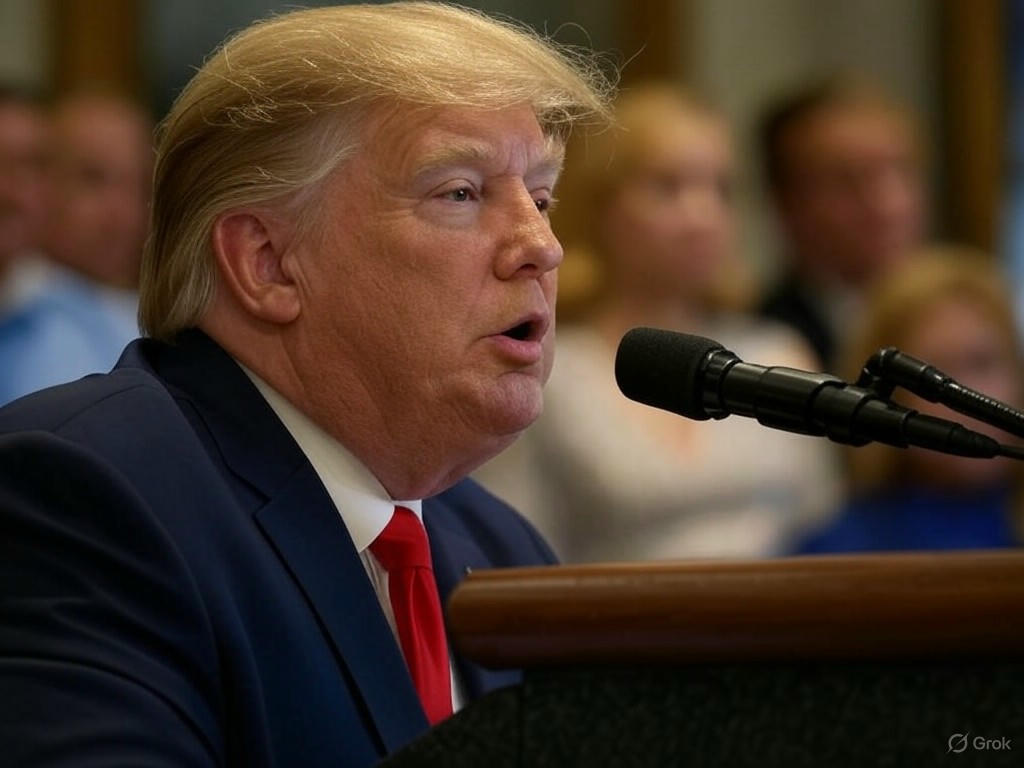In a bold move to shape the future of digital finance, former President Donald Trump has publicly pressed House Republicans to expedite the adoption of a streamlined version of a Senate-approved cryptocurrency bill. His call to action underscores the growing urgency to establish clear regulations for the rapidly evolving crypto industry, which continues to gain traction among investors and tech innovators alike. Trump’s insistence on a ‘clean’ version of the legislation suggests a desire to avoid unnecessary amendments that could stall progress or dilute the bill’s core intent. This development comes at a pivotal moment as lawmakers grapple with balancing innovation and oversight in the financial sector.
The Senate bill, which has already garnered bipartisan support, aims to provide a robust framework for regulating digital assets, addressing concerns such as consumer protection, market stability, and the prevention of illicit activities. However, House Republicans remain divided on the approach. Some members advocate for integrating the bill into a broader package of crypto-related policies, believing that a comprehensive overhaul is necessary to tackle the multifaceted challenges posed by digital currencies. Others caution against overcomplicating the process, echoing Trump’s sentiment that a focused, unaltered version of the Senate’s proposal could deliver quicker results. This internal debate highlights the complexities of legislating in a field where technology often outpaces policy, leaving lawmakers racing to catch up with innovations like blockchain and decentralized finance.
The stakes are high, as the cryptocurrency market continues to attract billions in investments while drawing scrutiny for its volatility and potential risks. Industry leaders have long called for regulatory clarity, arguing that well-defined rules could foster greater adoption and legitimize digital assets as a mainstream financial tool. On the other hand, critics warn that rushing legislation without thorough deliberation could lead to loopholes or unintended consequences, potentially exposing consumers to fraud or financial loss. Trump’s intervention adds a layer of political pressure to the discussion, as his influence within the Republican Party could sway undecided members to prioritize speed over extensive revisions.
As the House deliberates, the global landscape of cryptocurrency regulation is also shifting. Countries around the world are crafting their own policies, with some embracing digital currencies as a driver of economic growth while others impose strict controls to mitigate risks. The United States risks falling behind if it fails to act decisively, a concern that Trump’s statement implicitly acknowledges. His push for a swift resolution may also reflect a broader strategy to position the U.S. as a leader in financial innovation, an area where competition with nations like China and the European Union is intensifying.
Ultimately, the outcome of this legislative tug-of-war will shape the trajectory of the crypto industry for years to come. Whether House Republicans heed Trump’s call for a straightforward adoption or opt for a more comprehensive approach, their decision will send a powerful signal about the future of digital finance in America. As the debate unfolds, all eyes are on Capitol Hill, where the balance between innovation and regulation hangs in the balance.
